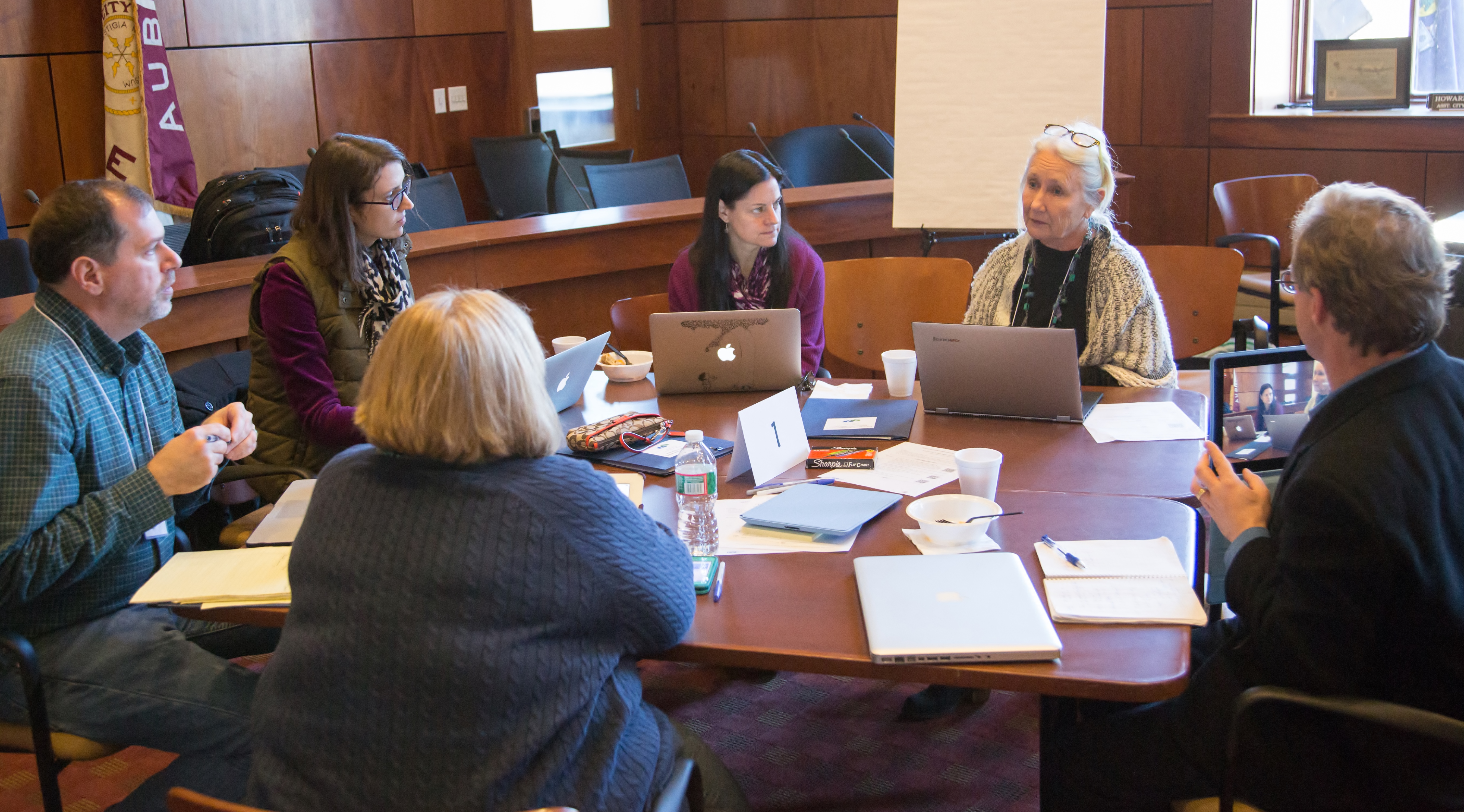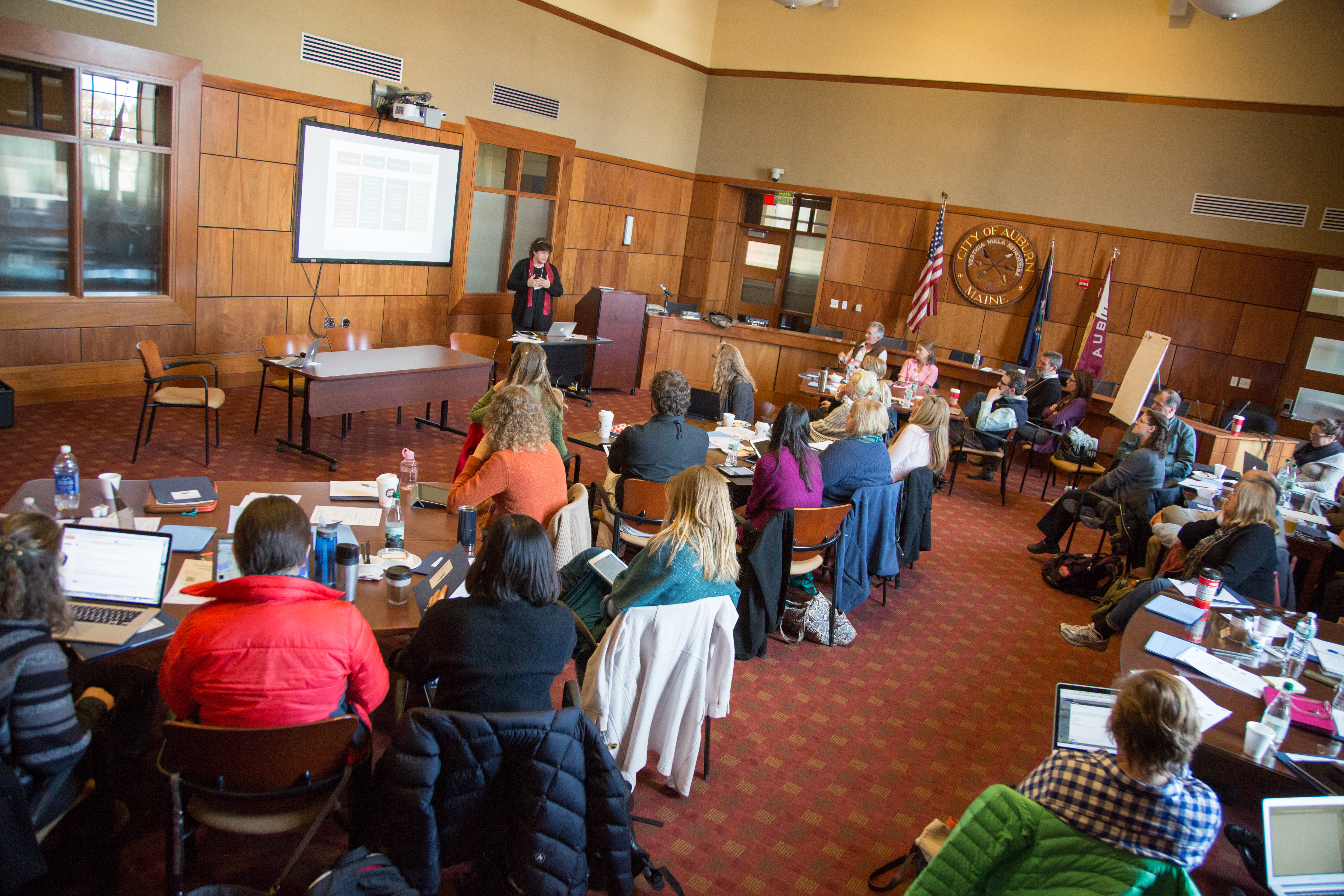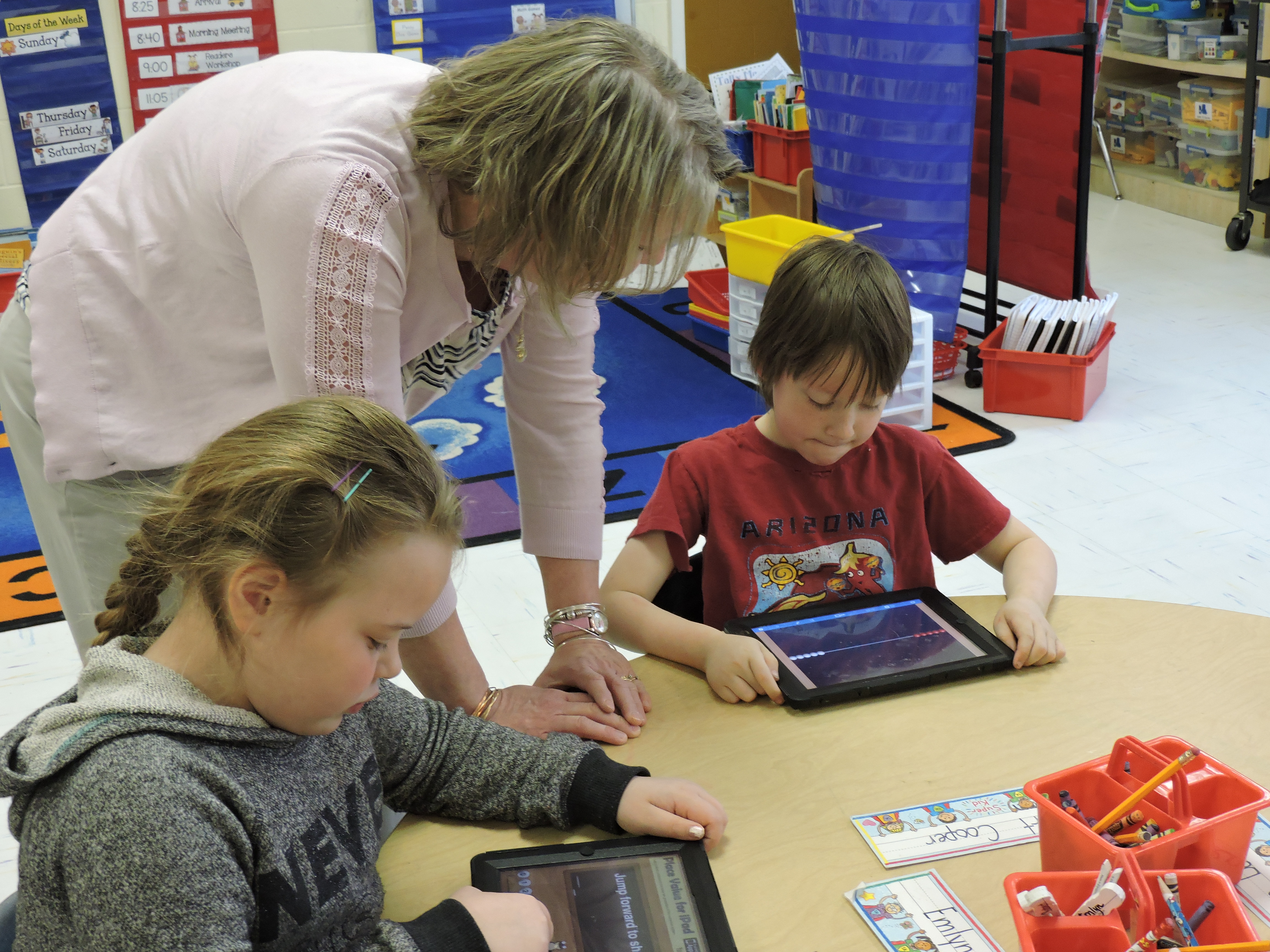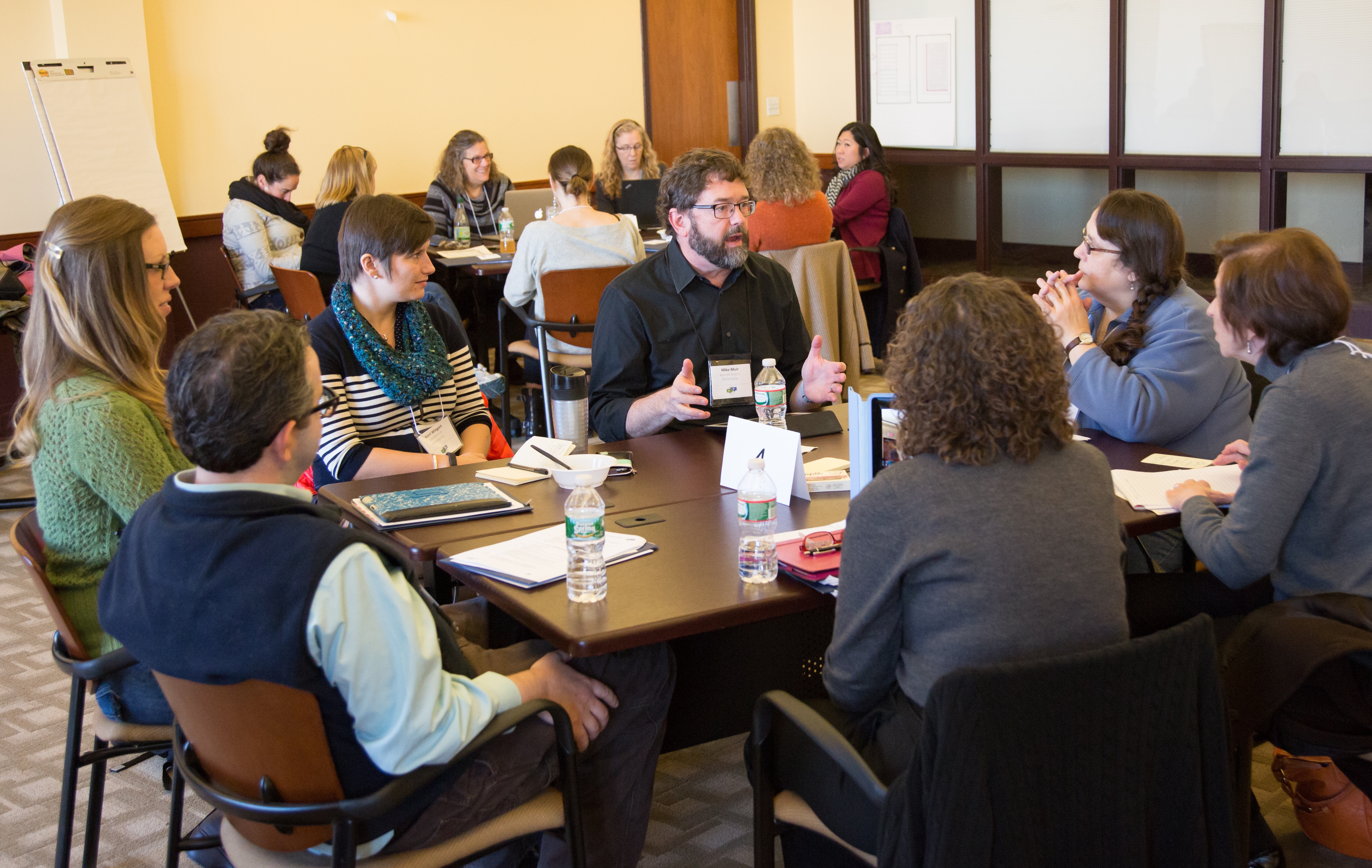Inquiry Group Meets to Develop Supports to Improve Mathematics Teaching and Learning
On November 4–5, the Interactive STEM team at EDC convened an Inquiry Group, bringing together participants with varied professional backgrounds—teachers, teacher leaders, representatives from professional organizations, university faculty, and researchers—to share knowledge, deepen understanding, and begin to develop products that will support pre-service and in-service teachers’ capacity to use interactive mobile technologies to improve mathematics learning among young students.
Over two days in southern Maine, the group looked at the themes emerging from the project’s work in Auburn, Maine, and identified supporting resources, strategies, activities, and research pertaining to each. The group identified three topics to examine in-depth: productive struggle, open tasks, and mathematical communication and critique.
Participants then split into three working groups to take a deeper dive into each of those themes. They examined in-depth what they know about these topical areas, what resources they have, as well as what they don’t yet know and haven’t yet created.
The results of the work begun during the Inquiry Group meeting will lead to the creation of collections of multimedia resources, research briefs, and other materials that will help pre- and in-service teachers, and teacher educators, improve mathematics teaching and learning in the early grades.
Day 2 of the convening began with a question: What does access and equity in math education mean to you?
That query sparked a rich discussion of mathematics education as a social justice issue. One teacher remarked on how the strategic use of screencasting—when students record their thinking in solving mathematical problems on an iPad—can change the conversation from “can’t-do” to “can-do” and build on what a child does know, rather than what they don’t. Echoes of that emphasis on a growth mindset, rather than a deficit model, reverberated in conversations throughout the day.
The working groups also discussed position papers on access and equity in mathematics education from the Association of Mathematics Teacher Educators (AMTE), the National Council of Teachers of Mathematics (NCTM), and the National Council of Supervisors of Mathematics (NCSM) and TODOS: Mathematics for All, and how the work of Interactive STEM contributes to those goals. The goal of increasing access and equity in mathematics education was a common thread that ran through each of the themes that the working groups discussed, and will feature in each of the collections of materials the team will produce.







